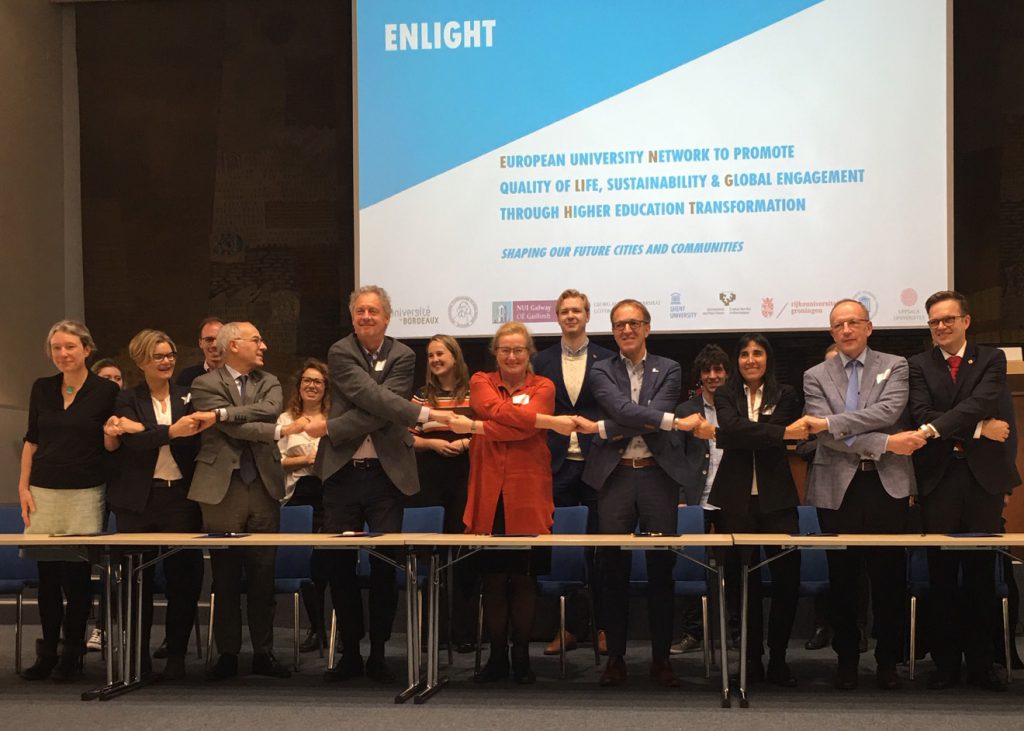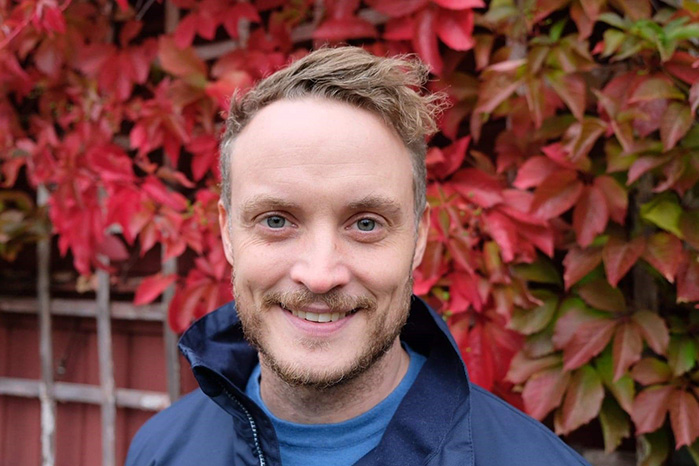Today I took part in the online kick-off of the European University Initiative (EUI), the purpose of which is to develop ‘European universities’ that will make Europe more attractive in the areas of education, research and innovation. The initiative is associated with a major drive to develop higher education in Europe in the years up to 2025. The EU has great visions in this area and this is going to affect Sweden and the Swedish higher education landscape. The trend is moving us towards deeper European integration.

In the summer we received the positive news that our application to participate in the evolution of the European higher education landscape through the ENLIGHT project had been approved. We are now one of 11 Swedish higher education institutions (HEIs) included in one of the 41 projects involving close to 280 HEIs from all over Europe.
It feels entirely natural for us to be involved, play our part and influence a change that we know will affect us in the years ahead. Our Swedish politicians and public authorities also need now to raise their sights and take an interest in the opportunities and challenges that this three-year pilot project will create. The project’s outcomes will require changes at national level too, and this is something beyond the control of HEIs alone.
So what is this pilot project for building up European universities all about? The higher aspiration of the EUI is to equip young people in Europe for the societal challenges of the future and to pool our strengths and experience for the common good of Europe. One longer-term goal is to create smooth – ideally, completely seamless – mobility for students and academics between the institutions and regions involved in the European universities.
The European University Initiative is a complex but very exciting project in which we will all need to feel our way forward to new forms of cooperation, new educational programmes, a diversity of common projects and solutions to the obstacles that we encounter even now when we seek to work more closely together. In that sense, it can be regarded as a launchpad for the reinvigoration of education here in our country.
ENLIGHT will pursue challenge-driven projects and pool the resources of its members in addressing five global challenges:
1. Health and wellbeing
2. Digitalisation
3. Climate change
4. Energy use and the circular economy
5. Equity
In these areas, each university will work in its regional context to formulate an approach to the challenge concerned. The idea is to proceed from each university’s own regional situation and build on existing foundations to achieve sustainable forms of collaboration. Consequently, the city of Uppsala and our region will be important partners for us in these efforts.
Uppsala University has a special responsibility for the challenges of climate change and equity. Important issues, then. Within this framework, there are great opportunities to contribute in areas that we know we are good at but where the EU sees a need to develop, such as student influence and access to an educational system for lifelong learning where account is taken of opportunities for people to update their knowledge and retrain through freestanding courses. The way we cooperate in the Nordic countries can probably also provide inspiration. At the same time, we will learn from others.
Here in Sweden we need to share experience with one another and to establish a consensus on our attitude towards this European movement. For example, it is important that this positive vision of an open Europe does not lead us to turn our backs on the wider world. Knowledge knows no borders and we must naturally continue to cooperate beyond European horizons as well. Moreover, needless to say, change has consequences and in this context, political will and openness are vital. We will run into obstacles that raise questions about the ways in which Swedish HEIs, being government agencies, are regulated and restricted by various regulatory frameworks. At present, for example, we are not able to plan for educational programmes that the government has not approved and cannot enter into international agreements without a parliamentary decision.

ENLIGHT is a major and important internationalisation project that will involve many people. A decision on the internal organisation is due soon and Jonathan Schalk has been appointed project manager. He and the working group, which includes academic coordinators from all disciplinary domains, are now planning flat out for the start of the project in the new year.
